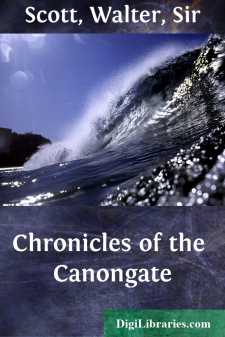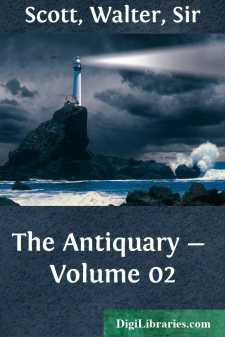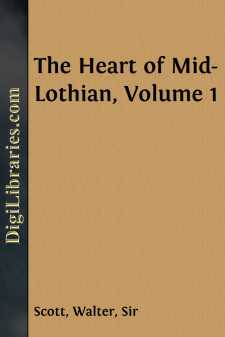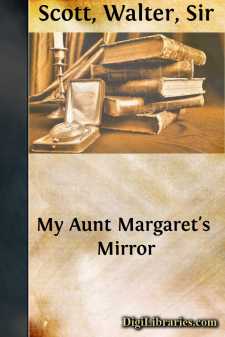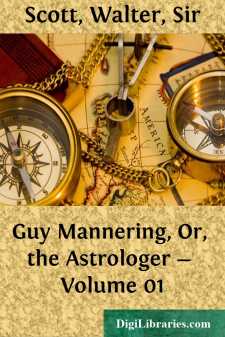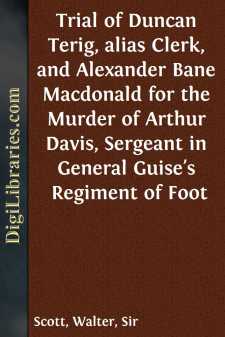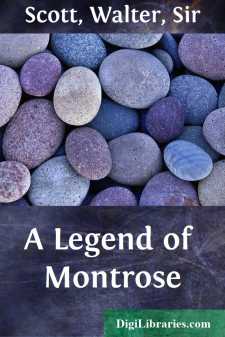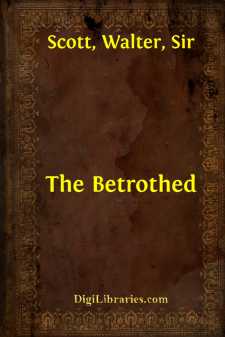Categories
- Antiques & Collectibles 13
- Architecture 36
- Art 48
- Bibles 22
- Biography & Autobiography 813
- Body, Mind & Spirit 142
- Business & Economics 28
- Children's Books 17
- Children's Fiction 14
- Computers 4
- Cooking 94
- Crafts & Hobbies 4
- Drama 346
- Education 46
- Family & Relationships 57
- Fiction 11829
- Games 19
- Gardening 17
- Health & Fitness 34
- History 1377
- House & Home 1
- Humor 147
- Juvenile Fiction 1873
- Juvenile Nonfiction 202
- Language Arts & Disciplines 88
- Law 16
- Literary Collections 686
- Literary Criticism 179
- Mathematics 13
- Medical 41
- Music 40
- Nature 179
- Non-Classifiable 1768
- Performing Arts 7
- Periodicals 1453
- Philosophy 64
- Photography 2
- Poetry 896
- Political Science 203
- Psychology 42
- Reference 154
- Religion 513
- Science 126
- Self-Help 84
- Social Science 81
- Sports & Recreation 34
- Study Aids 3
- Technology & Engineering 59
- Transportation 23
- Travel 463
- True Crime 29
Sort by:
by:
Walter Scott
INTRODUCTION TO CHRONICLES OF THE CANONGATE. The preceding volume of this Collection concluded the last of the pieces originally published under the NOMINIS UMBRA of The Author of Waverley; and the circumstances which rendered it impossible for the writer to continue longer in the possession of his incognito were communicated in 1827, in the Introduction to the first series of Chronicles of the...
more...
by:
Walter Scott
CHAPTER FIRST. Wiser Raymondus, in his closet pent,Laughs at such danger and adventurementWhen half his lands are spent in golden smoke,And now his second hopeful glasse is broke,But yet, if haply his third furnace hold,Devoteth all his pots and pans to gold.* * The author cannot remember where these lines are to be found: perhaps in Bishop Hall's Satires. [They occur in Book iv. Satire iii.]...
more...
by:
Walter Scott
CHAPTER FIRST. Whoe'er's been at Paris must needs know the Gre've,The fatal retreat of the unfortunate brave,Where honour and justice most oddly contribute,To ease heroes' pains by an halter and gibbet. There death breaks the shackles which force had put on,And the hangman completes what the judge but began;There the squire of the poet, and knight of the post,Find their pains no...
more...
by:
Walter Scott
It has long been the ambition of the present publishers to offer to the public an ideal edition of the writings of Sir Walter Scott, the great poet and novelist of whom William Hazlitt said, 'His works are almost like a new edition of human nature.' Secure in the belief not only that his writings have achieved a permanent place in the literature of the world, but that succeeding generations...
more...
by:
Walter Scott
CHAPTER I. You are fond (said my aunt) of sketches of the society which has passed away. I wish I could describe to you Sir Philip Forester, the "chartered libertine" of Scottish good company, about the end of the last century. I never saw him indeed; but my mother's traditions were full of his wit, gallantry, and dissipation. This gay knight flourished about the end of the seventeenth and...
more...
by:
Walter Scott
INTRODUCTION The Novel or Romance of Waverley made its way to the public slowly, of course, at first, but afterwards with such accumulating popularity as to encourage the Author to a second attempt. He looked about for a name and a subject; and the manner in which the novels were composed cannot be better illustrated than by reciting the simple narrative on which Guy Mannering was originally founded;...
more...
by:
Walter Scott
INTRODUCTION. Although the giving information concerning the unfair manner in which they were dismissed from life, is popularly alleged to have been a frequent reason why departed spirits revisit the nether world, it is yet only in a play of the witty comedian, Foote, that the reader will find their appearance become the subject of formal and very ingenious pleadings. In his farce called the Orators,...
more...
by:
Walter Scott
I. INTRODUCTION TO A LEGEND OF MONTROSE. The Legend of Montrose was written chiefly with a view to place before the reader the melancholy fate of John Lord Kilpont, eldest son of William Earl of Airth and Menteith, and the singular circumstances attending the birth and history of James Stewart of Ardvoirlich, by whose hand the unfortunate nobleman fell. Our subject leads us to talk of deadly feuds, and...
more...
by:
Walter Scott
It has long been the ambition of the present publishers to offer to the public an ideal edition of the writings of Sir Walter Scott, the great poet and novelist of whom William Hazlitt said, 'His works are almost like a new edition of human nature.' Secure in the belief not only that his writings have achieved a permanent place in the literature of the world, but that succeeding generations...
more...
by:
Walter Scott
The Tales of the Crusaders was determined upon as the title of the following series of the Novels, rather by the advice of the few friends whom, death has now rendered still fewer, than by the author's own taste. Not but that he saw plainly enough the interest which might be excited by the very name of the Crusaders, but he was conscious at the same time that that interest was of a character which...
more...


